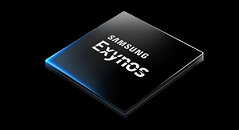T0@st
News Editor
- Joined
- Mar 7, 2023
- Messages
- 2,077 (3.17/day)
- Location
- South East, UK
Kernel information for a chipset code-named 'Quadra' has been leaked by Home IT. It appears that this SoC is under development at Samsung Electronics, and could be featured in the company's next generation flagship smartphone range. The recently released Galaxy S23 smartphone series is powered by Qualcomm's cutting-edge Snapdragon 8 Gen 2 processor, which ended up being a fine choice for the end user. This was not an ideal partnership for the semiconductor giant, considering its constant push to promote internally developed hardware.
Industry experts have praised Samsung for not integrating an Exynos processor into this generation of devices, including regional model variations, but that has not stopped the company's persistent development cycle of proprietary mobile CPUs. Rumors point to a collaboration with Google, and the Exynos 2300 SoC looks to form the basis of the latter's next generation Tensor G3 chipset. The leak reveals that the standard 2300 has been designed as a 1+4+4 core configuration, comprised of four performance cores, four efficiency cores, and one super core.



The specifications point to the single ARM Cortex-X3 super core being clocked at a maximum clock speed of 3.09 GHz. The four performance ARM Cortex-A715 cores come in at 2.65 GHz, and the efficiency ARM Cortex-A510 cores will clock in at 2.1 GHz. Based on this leak of internals, the Exynos 2300 seems to be capable of trading blows with the Snapdragon 8 Gen 2, which also shares a similar configuration of cores and clock frequencies.
The GPU onboard the chipset has been named 'Xclipse 930', and appears to be the product of a continued collaboration between Samsung and AMD. The previous generation Exynos 2200's GPU was based on AMD RDNA 2 architecture, and it looks as if the latest chipset will inherit an updated version of this technology.



Industry insiders have theorized that Samsung is already looking beyond the scope of the rumored Exynos 2300. Producing AI-powered features for future Galaxy devices is a key goal, and requires the integration of a Neural Processing Unit into a chipset. Google's Tensor SoCs already feature similar technology in the form of their custom TPU (Tensor Processing Unit). The rumored collaboration between Samsung and Google could result in the latter's expertise in machine learning tasks being useful in the engineering of next generation Exynos SoCs.
View at TechPowerUp Main Site | Source
Industry experts have praised Samsung for not integrating an Exynos processor into this generation of devices, including regional model variations, but that has not stopped the company's persistent development cycle of proprietary mobile CPUs. Rumors point to a collaboration with Google, and the Exynos 2300 SoC looks to form the basis of the latter's next generation Tensor G3 chipset. The leak reveals that the standard 2300 has been designed as a 1+4+4 core configuration, comprised of four performance cores, four efficiency cores, and one super core.



The specifications point to the single ARM Cortex-X3 super core being clocked at a maximum clock speed of 3.09 GHz. The four performance ARM Cortex-A715 cores come in at 2.65 GHz, and the efficiency ARM Cortex-A510 cores will clock in at 2.1 GHz. Based on this leak of internals, the Exynos 2300 seems to be capable of trading blows with the Snapdragon 8 Gen 2, which also shares a similar configuration of cores and clock frequencies.
The GPU onboard the chipset has been named 'Xclipse 930', and appears to be the product of a continued collaboration between Samsung and AMD. The previous generation Exynos 2200's GPU was based on AMD RDNA 2 architecture, and it looks as if the latest chipset will inherit an updated version of this technology.



Industry insiders have theorized that Samsung is already looking beyond the scope of the rumored Exynos 2300. Producing AI-powered features for future Galaxy devices is a key goal, and requires the integration of a Neural Processing Unit into a chipset. Google's Tensor SoCs already feature similar technology in the form of their custom TPU (Tensor Processing Unit). The rumored collaboration between Samsung and Google could result in the latter's expertise in machine learning tasks being useful in the engineering of next generation Exynos SoCs.
View at TechPowerUp Main Site | Source






